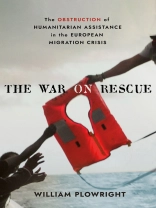The War on Rescue documents how governments block assistance to people in times of crisis. Focusing on the European Migration Crisis of 2015–2022 to address the reasons why governments do this, William Plowright discusses the strategies employed that prevent suffering people from receiving help.
The European Migration Crisis motivated people around the world to offer assistance to needy refugees and migrants across Europe, the Mediterranean, and North Africa. Both large and small organizations rushed to bring food, medical care, and rescue to those stranded at sea. However, many European governments sought to prevent humanitarian assistance and deny safe haven to the desperate. Boats filled with those rescued were blocked from harbors, activists were arrested, and staff were threatened; some faced violence. The War on Rescue adds to social science understanding of and explanations for humanitarian assistance and the reasons why governments obstruct rescue efforts.
Spis treści
Introduction
Humanitarianism, Displacement and Migration
Why States Obstruct Humanitarian Assistance
How States Obstruct Humanitarian Assistance
The Unfolding of the European Migration Crisis
The Obstruction of Médecins Sans Frontières in the European Migration Crisis
The Experiences of Small NGOs in the Migration Crisis
Conclusion
O autorze
William Plowright is Assistant Professor of International Security at Durham University. His research focuses on the dynamics of armed conflict and on the delivery of humanitarian assistance. Plowright has more than ten years managing humanitarian operations in such countries as Afghanistan, Syria, the Democratic Republic of the Congo, the Central African Republic, and Libya.












